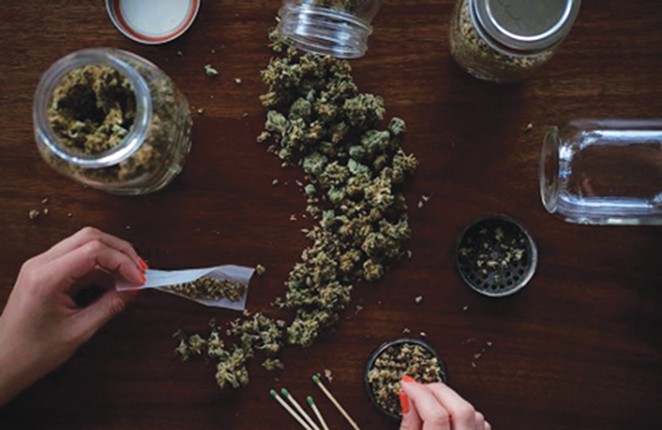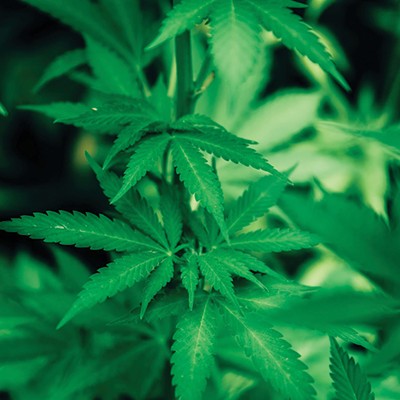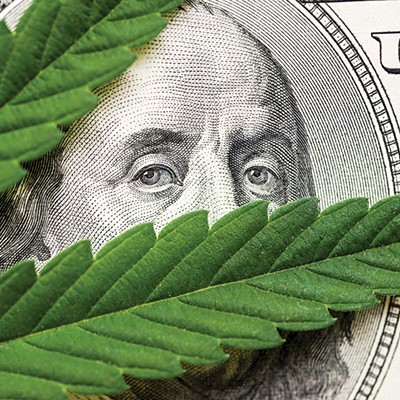Told You So
This week saw the final flame out of MedMen, a spectacular fall that while not unexpected, is staggering in its scope. I wrote that this possibility was closer than ever in February, when a number of store closings forecast trouble ahead. Last week, MedMen filed for bankruptcy in Canada, and its California operations entered receivership with plans for liquidation of assets. They list liabilities at $410 million U.S., with a Canadian traded stock falling from its high of $6 to $0.
As recently as 2018, it was valued at $3 billion, and the first California cannabis brand valued at over $1 billion. In February, the company announced they had $15.6 million in cash left, with debts totaling $137.4 million, after going through five CEOs in three years.
As far back as 2019, as SF Gate writes, "the company itself was blamed for recklessly burning through cash, and its executives were accused of spending lavishly on their own expenses, including 24-hour armed guards, private planes and luxury cars. By 2020, MedMen was already falling behind on its bills."
Those bills now include hundreds of vendors who will never see a dime for the products they sold to MedMen. #Corporateweedsucks
4/20 Fanfare and Failures
April 20 saw both highs and lows for the cannabis industry. MJ Freeway released a deep dive into the data of dispensary sales, with 4/20 reaching over $181 million, up from $178.2 million in 2023.
By category, consumers purchased 47% flower, 32% vapes, 11.5% edibles, 8% concentrates and the balance in topicals and non-medicated products. Discounts on 35% of products made for happy buyers.
However, Bend-based cannabis point of sale and e-commerce platform Dutchie experienced an outage on the worst possible day, resulting in losses of sales that one dispensary chain in Maryland put at over $80,000 and over 1,000 canceled orders. Used by over 6,000 dispensaries in both the U.S and Canada, the crash impacted an unknown number of stores that could not perform any sales, in person or online. One Michigan dispensary reported an outage of five hours, with an operations manager telling MJBiz Daily, "We had so many angry and disappointed customers, and we were literally helpless."
Dutchie told MJBiz in a statement: "Our systems powered over 2 million transactions, representing $165 million in retail commerce – a 50% increase from 2023 4/20....a group of customers local to a specific instance of our POS system experienced serious issues that impacted their ability to transact."
Should We Fear the Next Farm Bill?
The passage of the U.S. 2018 Farm Bill effectively legalized CBD products derived from hemp, which was made legal to grow across the U.S. It opened the floodgates for something cannabis doesn't have, the ability to sell those (non-psychoactive) products in other states, so long as they have no more than .3% THC.
But no one ever went broke underestimating the appetite Americans have for getting high, which is why chemists rolled up their sleeves and went to work to find hemp derived cannabinoids other than CBD which do have psychoactive effects.
That begat everyone's favorite gas station vape cart ingredient, Delta 8, the Dollar Tree version of Delta 9. (I kid, I kid - early research indicates it may have value in the treatment of Multiple Sclerosis.) Don't forget Delta 10, THC-O, THC-P, THCCA, HHC and many more, with varying levels of intoxication. Whitney Economics puts the value of the market for these and other hemp derived cannabinoids at over $28 billion.
The lack of regulations for purity of products, accuracy in labeling and ease of access for minors have moved some states to ban the sale of some of these products. (Oregon has made Delta 8 and Delta 10 illegal, with an exception for some Delta 8 edibles.)
The Farm Bill needs to be renewed every five years for funding. A current extension has allowed lawmakers to delay sorting out what if any action to take on this new and exploding marketplace. They could ban all, some, or none of these hemp derived cannabinoids, boosting or sinking the industry. Passage is expected this year or next.





















